Russia, India at Crossroads
The Diplomat, a leading news website in Asia, has republished a piece on the December 16th, 2011 India-Russia Summit by Gateway House Russia Studies Fellow, Katherine Foshko.
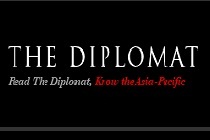 Courtesy: The Diplomat
Courtesy: The Diplomat
The Diplomat, a leading news website in Asia, has republished a piece on the December 16th, 2011 India-Russia Summit by Gateway House Russia Studies Fellow, Katherine Foshko.

Amidst myriad country groupings that already exist – BRICS, IBSA, APEC, SCO and many others – a new initiative in the Pacific is looking to integrate more powerful countries to form a multilateral free trade agreement – the Trans Pacific Partnership. How important is this towards the reshaping of trade and power?
 Courtesy: UN Photo/Paul Banks
Courtesy: UN Photo/Paul Banks
After the crass misuse of Responsibility to Protect (R2P) in Libya, the broader question is: where is R2P headed? Do the events in Libya herald a more explicit assertion of this doctrine in other parts of the world? And should India rethink its viewpoint towards this ambiguous doctrine?
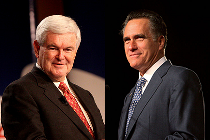 Courtesy: Gage Skidmore/WikimediaCommons
Courtesy: Gage Skidmore/WikimediaCommons
The U.S. presidential race for 2012 is on, and the Republican Party will see a Gingrich vs Romeny face-off. One must, however, invoke the cliché that ‘a week is too long in politics’ as an insurance against faulty predictions.
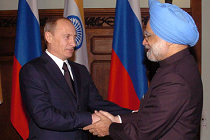 Courtesy: PMO
Courtesy: PMO
The India-Russia relationship has seen much progress over the past year - 30 MoU's were signed, two Russian nuclear reactors were set up in India and visa regimes have been eased considerably. But will this be enough to lift the relationship from the benign neglect of the past?
 Courtesy:
Courtesy:
Gateway House's Director Neelam Deo was quoted in an article published by Afternoon Despatch & Courier. She highlights the instability in the Middle East, the effects of a stablising Libya, and the need for oil and gas reforms.
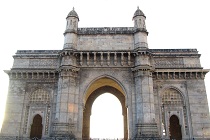 Courtesy: Xerxes Adrianwalla
Courtesy: Xerxes Adrianwalla
While it is common for monuments of erstwhile rulers to be violently demolished, India has refrained from such actions. After 100 years, what does the Gateway of India mean today? Is it a metaphorical portal for exploring how India and Indians might help to foster new paradigms of power at home and abroad?
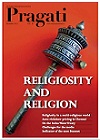 Courtesy: Pragati
Courtesy: Pragati
Indo-Pak hydro-politics must evolve from endless debates over ‘water division’ and Run-of-River dams to more sustainable efforts like demand management, resource sharing and disaster management.
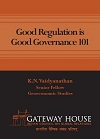 Courtesy: Gateway House
Courtesy: Gateway House
There is an immediate need for observance of good governance in regulation and a restructuring of the regulatory architecture. Key to this is the recovery of ground lost by the regulator in ensuring market integrity
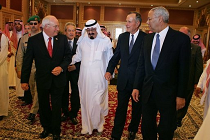 Courtesy: White House photo/WikimediaCommons
Courtesy: White House photo/WikimediaCommons
The Wahhabis, who now merit NATO backing, continue on their global mission of converting the Muslim Ummah to its relatively harsh and antediluvian ways of thinking and living. For NATO, this is a geopolitical miscalculation that will have tragic security consequences for the alliance within a decade.